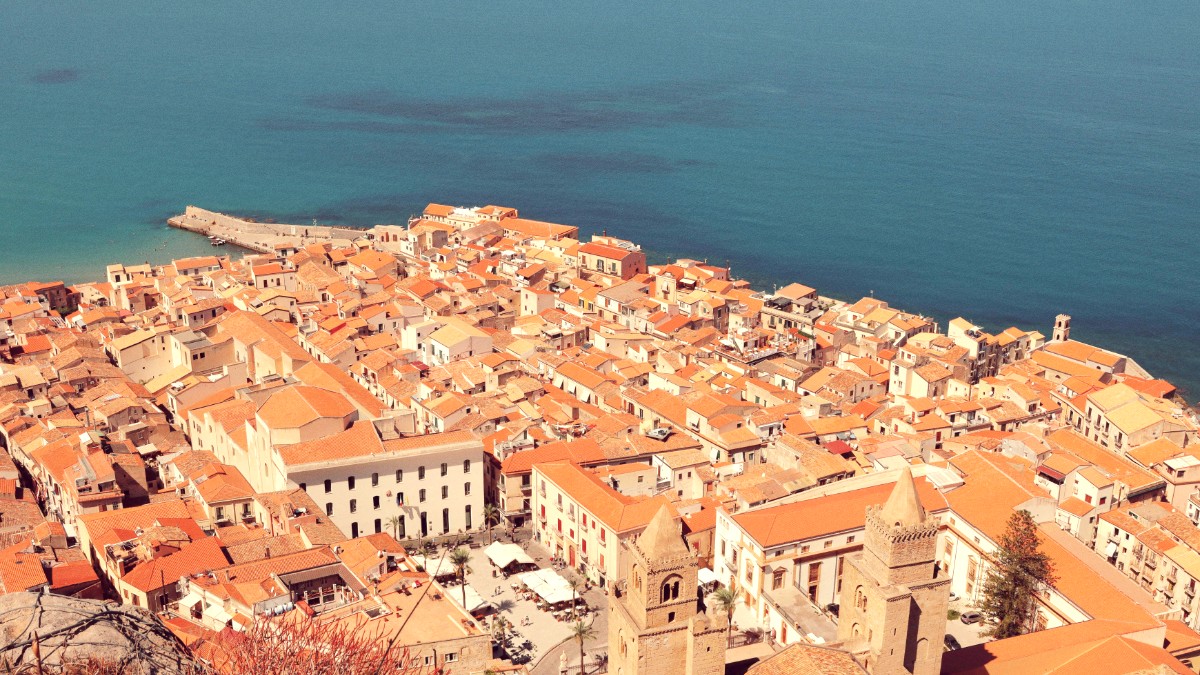
Sicily, Italy
Summer (June-August): These months bring hot and dry weather. Average temperatures range from 25-30°C (77-86°F), often exceeding 30°C (86°F) in July and August. Little rain appears. Coastal humidity might be high.
Spring (April-May) and Autumn (September-October): These seasons offer mild and pleasant conditions. Average temperatures range from 18-24°C (64-75°F). Crowds are fewer, and occasional rain showers occur. Landscapes become lush with wildflowers. Winter (November-March): Winter brings mild and wet weather. Average temperatures typically stay between 10-15°C (50-59°F). Higher precipitation levels are observed, especially from December to February.
Cefalù does not experience monsoons or hurricanes. Heat waves can occur during July and August, sometimes pushing temperatures above 40°C (104°F). Stay hydrated and seek shade during these periods.
A risk of wildfires exists, especially in dry, hot summer months, notably in rural or forested areas surrounding the town. Heavy rainfall, notably in autumn, can lead to localized flash floods, especially in low-lying areas. Pay attention to weather warnings.
April-May, Sep-Oct
Pleasant temperatures, fewer crowds, lower prices.
Sea cooler for swimming, some seasonal businesses close late Oct.
June-August
Warmest sea temperatures, all businesses open, lively atmosphere.
Hot and crowded, highest prices, activities like hiking challenging.
Nov-March
Lowest prices, very few tourists, authentic experience.
Cooler, rainier weather, many seasonal businesses closed, sea too cold for swimming.
Mid-June to mid-September provides the warmest sea temperatures for swimming and beach enjoyment.
April-May and September-October offer comfortable temperatures for exploring on foot. Summer heat makes these activities challenging.
Explore cultural sites year-round. Shoulder and low seasons for peace.
Spring and autumn offer softer light and clearer skies.
Shoulder seasons are ideal for fewer tourists.
Low season generally offers the best rates.
Peak season for full vibrancy, shoulder for balance.
Rules vary based on your nationality.
Schengen Visa (Short-stay): Citizens from non-EU/EEA/Swiss countries without a visa-waiver agreement typically obtain a Schengen visa. This visa permits stays up to 90 days within any 180-day period for tourism or business. Application happens at the Italian embassy or consulate in your country of residence well in advance. The process typically involves submitting forms, supporting documents, and attending an interview.
Visa-Waiver Countries: Citizens from countries like the USA, Canada, Australia, and the UK do not require a visa for stays up to 90 days for tourism or business. An ETIAS (European Travel Information and Authorisation System) authorization will become mandatory for visa-exempt travelers from mid-2025. Plan to apply for ETIAS online before your trip once it becomes active.
No general entry fees apply to tourists upon arrival in Italy. Standard passport control procedures take place at your port of entry (airport or seaport). Customs checks follow immigration.
No special permits are called for general tourism activities in Cefalù or the surrounding areas. If you plan activities like scientific research or long-term volunteering, different regulations may apply.
Minimum 3 months beyond departure
Passport must have issuance within the last 10 years.
Needs at least two blank pages.
Sufficient funds for stay
Bank statements or credit cards.
Approximately €45-50 per day.
Mandatory for Schengen Visa
Minimum €30,000 for medical emergencies & repatriation.
Carry proof during travel. (World Nomads, SafetyWing, Insubuy)
Carry your valid passport and visa (if applicable). Have proof of return or onward ticket from the Schengen Area. Proof of accommodation, like confirmed hotel bookings or a formal invitation letter, will be needed.
Proof of sufficient funds for your stay is advisable. This might be bank statements or credit cards. Health-related entry requirements are currently standard, but always consult your doctor for personalized vaccination advice before any international trip.
Make digital copies of all documents and store them in a secure cloud service.
Carry physical photocopies separate from the originals.
Inform your bank of travel dates to Italy to avoid card suspensions.
Create a list of emergency contacts, your embassy, and local numbers.
Backups of documents assist with device loss or battery drain.
The Euro (€) is the currency throughout Italy.
Cefalù uses the Euro (€). ATMs, known as "Bancomat," are readily available throughout the town, especially near the main squares and banks. Major credit cards like Visa and Mastercard are widely accepted in most hotels, restaurants, and larger shops.
Budget-conscious travel is possible with a few smart choices.
Maximize your budget while exploring Cefalù.
Familiarize yourself with common concerns and preventive measures.
No specific vaccinations are mandated for entry to Italy from most countries. Ensure your routine vaccinations, like MMR, DTaP, Polio, and your annual flu shot, are current. Hepatitis A and B, and Tetanus are generally recommended for travelers.
Consult a medical professional for personalized advice based on your medical history and travel plans.
Italy has a public healthcare system, the Servizio Sanitario Nazionale (SSN). EU citizens can use their European Health Insurance Card (EHIC). Non-EU citizens should have comprehensive travel insurance.
Hospitals ("Ospedale") and pharmacies ("Farmacia") are readily available.
Ensure your Travel insurance policy covers medical emergencies.
Tap water in Cefalù is generally safe to drink. Food hygiene standards attain high levels in restaurants and food establishments. Enjoy local cuisine with confidence.
Tap water is safe for consumption.
Practice good hand hygiene before meals.
Sicily resides in a seismic zone, but major damaging earthquakes are rare. Risk of wildfires during dry, hot summer months in rural areas. Heavy rainfall in autumn leads to localized flash floods.
Stay informed about local weather warnings.
No specific health entry requirements currently beyond standard guidelines.
| Category | Detail | Precaution |
|---|---|---|
| Overall Safety | Cefalù is a very safe town with low crime rates. | Common sense precautions. |
| Petty Theft | Pickpocketing can occur in crowded tourist areas. | Exercise vigilance, secure belongings. |
| Neighborhoods | No specific neighborhoods identified as unsafe. | General awareness. |